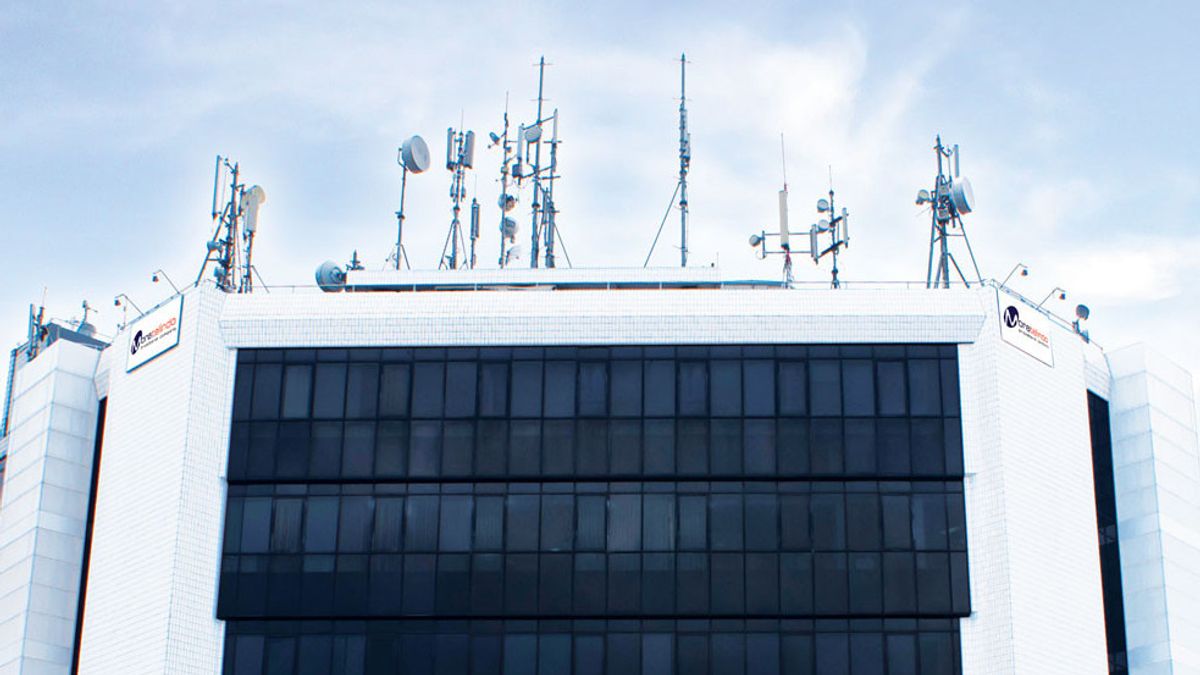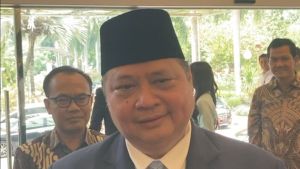JAKARTA - The COVID-19 pandemic has changed many aspects of people's lives in Indonesia. One of them is the high dependence on internet use.
Currently, the growth of bandwidth traffic in Indonesia is increasing rapidly, almost all aspects of life use the internet. No wonder the need for a faster and wider internet network is getting higher.
Data from the Ministry of Communication and Information of the Republic of Indonesia stated that internet service traffic reached up to 39.7 petabytes in May 2021. This figure increased 49 percent compared to last year's traffic.
The increasing demand for internet has become a challenge for internet service providers (ISPs). The need for alternative routes is very important, especially for international gateways.
To improve connectivity between regions in Indonesia to be even stronger, the Hawaiki Submarine Cable Limited Partnership (Hawaiki), a company experienced in managing submarine cables based in New Zealand, has collaborated on a project to develop infrastructure for a trans-Pacific submarine cable communication system with PT Mora Telematika. Indonesia (this project is hereinafter referred to as Hawaiki Nui).
"The presence of the Hawaiki Nui cable will significantly expand the existing underwater network. Hawaiki indirectly offers unparalleled connectivity in the Asia Pacific region. Cables from Hawaiki Nui are designed to provide fast and direct connectivity," explained Remi Galasso, Founder and Executive Chairman of Hawaiki in a webinar Wednesday 3 November.

"Indonesia has become a strategic market in Southeast Asia and we are proud to partner with Moratelindo which has demonstrated its unique ability to deploy and operate submarine and terrestrial fiber networks in Indonesia over the past few years," added Remi Galasso.
This collaboration plans to build a Sea Cable Communication System (SKKL) network that will connect the United States, Indonesia, Singapore to Australia routes. This project will deploy a fiber optic network from Southeast Asia to the United States. Referring to the cooperation agreement, construction work is planned to start in 2022 with ready-to-use cables (RFS) which are expected to be installed in 2025.
"With the planned development of the Trans-Pacific Underwater Communication System, Indonesia will get access to international connections that are more optimal than before," said Ismail as Plt. Director of the Implementation of Post and Information Technology, Ministry of Communication and Information of the Republic of Indonesia.
Cables from Hawaii have now connected Australia, New Zealand, American Samoa, Hawaii, and the western United States. Cooperation with Moratelindo will be a strategic partnership, considering that Moratelindo is a local partner who will help arrange permits to the Indonesian government related to the Hawaiki Nui project. Moratelindo also plays an important role in building an effective system for laying and managing submarine cable lines.
"This collaboration is a strategic step. With the construction of an Underwater Communication System with this route, it can reduce the dependence on connections through Singapore," explained Galumbang Menak, President Director of PT Mora Telematika Indonesia.
Cooperation in the creation of a Sea Cable Communication System network to improve connectivity between regions not only benefits cross-border business interactions but also provides great benefits for the connectivity of archipelagic regions such as Indonesia.
This line will be an alternative that will provide low latency for international connections in Indonesia," said Michael McPhail, Chief Technology Officer of PT Mora Telematika Indonesia.
For information, PT Mora Telematika Indonesia (the Company) was established on August 8, 2000. The main business fields of the company are internet services, data centers, and backbone rental of domestic and international interconnections and lastmile networks. The company obtained a business license from the Indonesian government in the telecommunications sector, such as closed fixed network, NAP (Network Access Point), ISP (Internet Service Provider), and local fixed network.
In 2012, the company built and operated a national data center under the name Nusantara Data Center (NDC). In 2018, the company built a cable construction in Indonesia that stretches from Denpasar-Java-Sumatra to Singapore. In addition to operating in the telecommunications sector, the company made innovations in 2016 by entering the retail market (FTTX) through the "oxygen.id" brand.
Based on the company's performance, the Indonesian government entrusted the company to carry out national strategic infrastructure projects by appointing the company as the winner of the tender for the West Palapa Ring Project and the East Palapa Ring Project in 2016. The West Palapa Ring Package project has been operating since March 2018, while the East Palapa Ring Package project has been in operation since March 2018. has been operating since August 2019.
After successfully implementing the West Palapa Ring and East Palapa Ring projects, the company through the KSO BPS-MORATELINDO, a collaboration between the company and PT Bhumi Pandanaran Sejahtera (Perseroda) or BPS has succeeded in gaining the trust of the Semarang city government to work together on the project to build, operate, and supervise passive telecommunications in the city of Semarang.
As of 2020, the company has carried out the construction of a fiber optic cable network with a total length of 48,515 kilometers and a total capacity of 18,360 G.
The English, Chinese, Japanese, Arabic, and French versions are automatically generated by the AI. So there may still be inaccuracies in translating, please always see Indonesian as our main language. (system supported by DigitalSiber.id)













